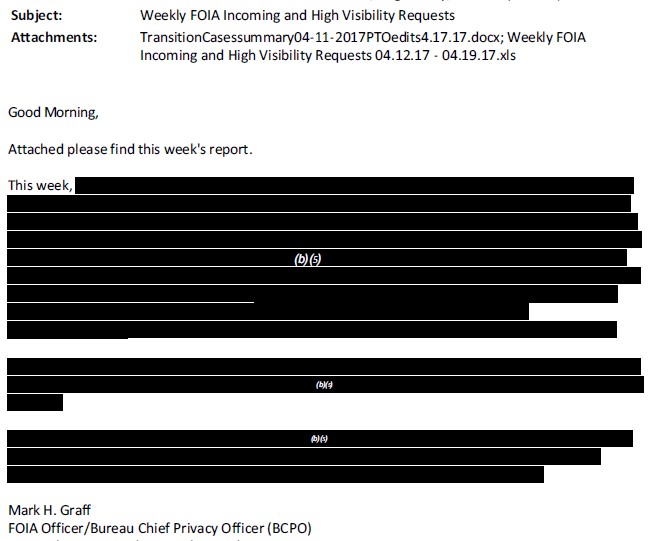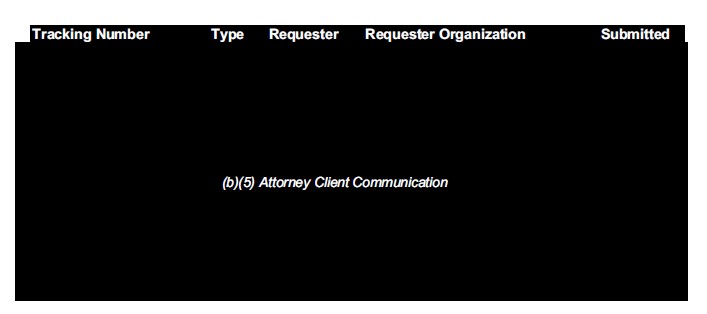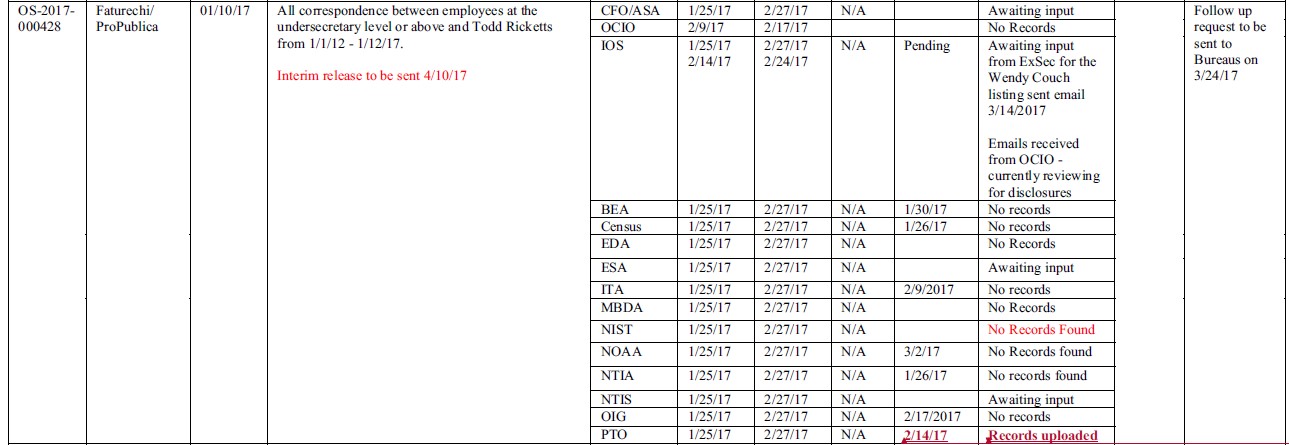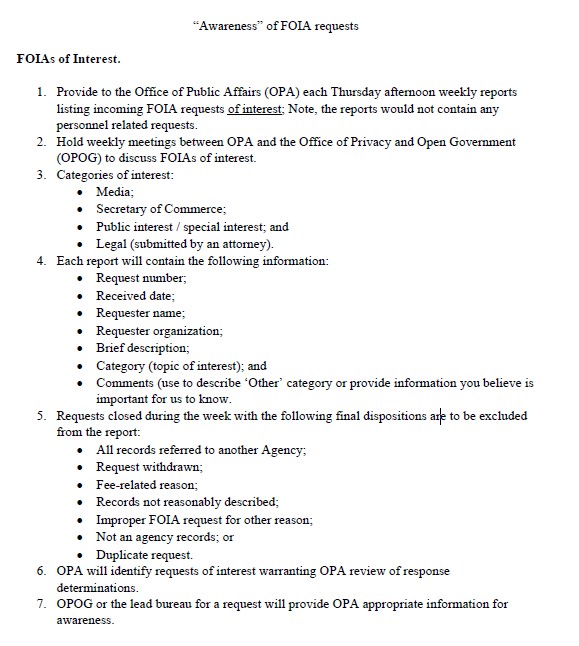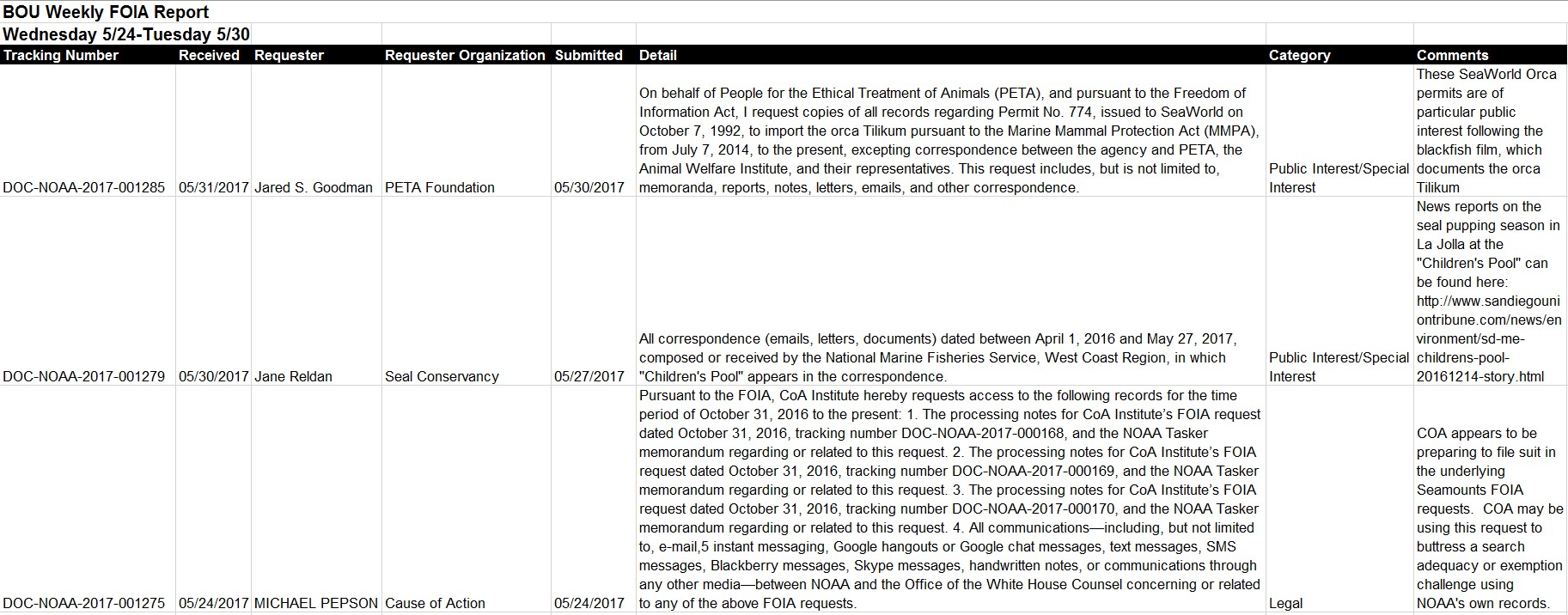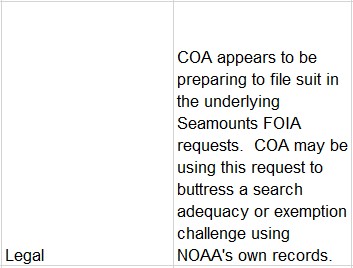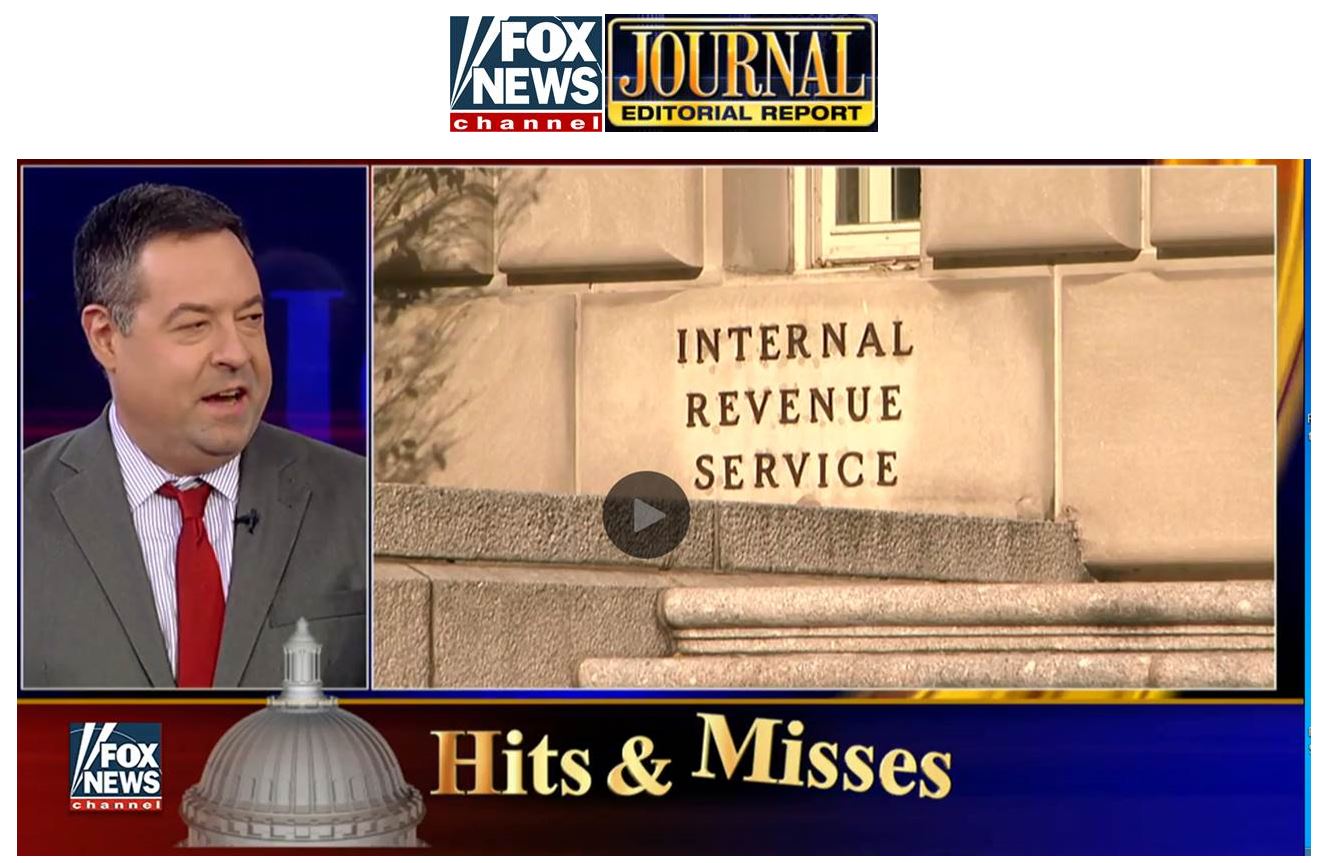The Freedom of Information Act (“FOIA”) ensures all citizens equal and open access to records of the administrative state. It should come as no surprise, however, that the Executive Branch has never been thrilled about disclosing its records to the general public. At various times, the White House has orchestrated efforts to frustrate prompt disclosure of records under the FOIA, and President Trump is no exception. In its first year, the Trump Administration has expanded the so-called sensitive review process. In doing so, agencies have denied FOIA requesters their statutory right of prompt access to government records.
Sensitive review refers to the practice of giving certain FOIA requests extra scrutiny, usually because the records they seek could solicit media attention once disclosed. The sensitive review process may involve an agency’s public affairs team or other communications specialists, and often includes political appointees at the agencies involved. The process delays and sometimes prevents disclosure of records that the public has a right to see.
Recently, Cause of Action Institute (“CoA Institute”) learned that at least one agency—the National Oceanic and Atmospheric Administration (“NOAA”)—has expanded the sensitive review process by putting FOIA requests from attorneys into a special class. In some cases, the agency has done this out of fear it would release records that could be used against it in litigation. These evasive tactics violate the spirit and purpose of the FOIA. They cannot and should not be tolerated. Sensitive review of requests based on the identity of a requester can only reflect the Administration’s efforts to limit the disclosure of records, or at least the segment of requester to whom such information is provided, rather than representing any legitimate concern.
Investigating NOAA’s “High Visibility” FOIA Process
For some time now, CoA Institute has been concerned that NOAA may be abusing the sensitive review process to avoid disclosing information it would rather keep hidden. In one FOIA production from the agency, for example, NOAA used dubious grounds to redact an email and one of its attachments almost in their entirety, as shown below.
One of the two tracking tables attached to this email included a list of incoming requests at NOAA. NOAA withheld the substantive information concerning those requests—such as the identities of the requesters, the tracking numbers of their requests, and their respective fee category (e.g., representative of the news media)—under attorney-client privilege. But it is difficult to credit that such benign tracking information would be privileged, particularly when many agencies regularly release FOIA logs containing just this sort of information.
The second tracking table attached to the email reflected NOAA’s contributions to a Department of Commerce-wide effort to track requests pertaining to the Trump Administration’s transition period. For example, in response to a request from ProPublica, NOAA was unable to locate any records of correspondence with former Trump nominee Todd Ricketts. Unlike the NOAA-specific tacking table, however, the information about departmental requests was left unredacted in most instances.
Newly Released Records Provide Details about NOAA’s Enhanced Sensitive Review
In an attempt to understand NOAA’s sensitive review practice, on December 11, 2017, we submitted a FOIA request to NOAA seeking access to all records about the agency’s practice of identifying “high visibility” FOIA requests, as well as its tracking of requests concerning the Trump transition. This week the agency provided an interim production of responsive records, and the records produced are helping us piece together just what the agency considers to be a high visibility request.
As noted, sensitive review refers to the practice of giving certain FOIA requests extra scrutiny, including by bringing political appointees into the review process. At the Department of Treasury during the Obama Administration, for example, a whole committee of political appointees—along with representatives from the agency’s public affairs, legislative affairs, and general counsel offices—availed themselves of the opportunity to review responsive records and delay disclosures. In the past, sensitive review has been used to target media requesters and frustrate the release of potentially embarrassing or politically-damaging agency records. It even prompted an investigation by the House of Representatives Committee on Oversight and Government Reform.
NOAA’s current sensitive review policy, according to one of the recently-produced records, appears to have been formulated in May 2017. FOIA staff are expected to “[p]rovide the Office of Public Affairs each Thursday afternoon” with “weekly reports listing incoming FOIA requests of interest.” Weekly meetings are also anticipated to discuss these requests. The types of requests that elicit agency “interest” include those from the media and those that seek records in the public interest. But they also include any request “submitted by an attorney.” Moreover, NOAA’s Office of Public Affairs has the authority to “identify requests of interest warranting OPA review of response determinations.” Although NOAA’s policy doesn’t require political appointees to insert themselves into the FOIA process, it does appear to represent a worrisome subordination of career FOIA staff to the agency’s communications shop. That flies in the face of good government.
In our estimation, one of the more troubling aspects of NOAA’s new policy is the agency’s decision to treat FOIA requests from “lawyers” as deserving special scrutiny. What is the basis for such treatment? According to one of NOAA’s weekly FOIA reports, CoA Institute—a non-profit organization that is routinely recognized as a news media requester under the FOIA—was subjected to this heightened sensitive review when we requested processing notes for several earlier requests concerning the Antiquities Act.
In the “Comments” column, NOAA FOIA staff noted some alarming details about what it considered important for the Office of Public Affairs to consider:
Regardless of the motivation behind CoA Institute’s, or anyone’s, request, it is illegitimate for an agency to treat a requester differently simply because the agency fears the requester may enforce his rights in a court of law. FOIA litigation is unique in that there is a tremendous asymmetry in knowledge between the parties about the processing of a request. That can make it difficult for a requester to challenge agency affidavits defending the adequacy of a search or the use of an exemption. Courts already routinely defer to such affidavits. It now seems NOAA wants to fight against anything that could result in the public learning more about the way a request is processed. Subjecting requests for processing notes to sensitive review could also suggest that NOAA is strategically laying the groundwork for the future application of the attorney-client or attorney work product privileges, namely, by memorializing the agency’s expectation of future litigation—no matter how distant, unreasonable, or disconnected that “expectation” may be from reality.
NOAA’s fear of a “litigation risk” from CoA Institute even prompted the flagging of other requests from unrelated parties about similar topics.
The fear of possible litigation also underlies the agency’s reticence to produce FOIA logs—basically, a type of processing note—when those records implicate subject-matters that could receive media attention.
NOAA continues to process CoA Institute’s December 11, 2017 request, and we have yet to review all the records that have been disclosed thus far. Many of these records are in Word or Excel format and contain detailed metrics on the performance of NOAA’s FOIA office, including efforts to eliminate the backlog of pending requests. As we review the available data and begin to receive correspondence reflecting sensitive review deliberations, we will provide additional updates on our website.
Sensitive Review as a Form of FOIA Politicization
The enhanced sensitive review at NOAA is concerning. But it also confirms a growing suspicion in the news media and the FOIA requester community that the Trump Administration is intentionally increasing the involvement of agency leadership and political appointees in the processing of FOIA requests. Last December, the Washington Post reported that officials at the Environmental Protection Agency (“EPA”) and the Department of the Interior (“Interior”) had started to “keep closer tabs” on incoming requests for records that could be embarrassing or politically damaging to the Administration. More recently, a senior career official at the Department of Housing and Urban Development (“HUD”) claimed to have been “barred from handling” requests submitted by the Democratic National Committee because she was perceived to be a “Democrat,” and therefore opposed to the Administration’s interests in limiting the disclosure of embarrassing of politically-damaging information.
As I have explained, the improper interference by political appointees in the administration of the FOIA is hardly new. It has been ongoing for years regardless of which party controlled the White House and in a variety of federal agencies, including the Department of Treasury, the Department of Housing and Urban Development, the EPA, Interior, the State Department, the Department of Veteran Affairs, the Department of Defense, and the Department of Homeland Security (“DHS”). (Admittedly, it does seem that DHS has made efforts to limit political appointees’ involvement in FOIA administration.)
To the extent President Trump has sought to avoid transparency and open government—to chip away at the “colossus” of FOIA, as Nate Jones has described—he is following in the unfortunate and inexcusable footsteps of his predecessors. That action should not go uncontested. CoA Institute remains committed to holding the White House and every federal agency accountable when they violate the spirit and letter of the FOIA.
Ryan Mulvey is Counsel at Cause of Action Institute
